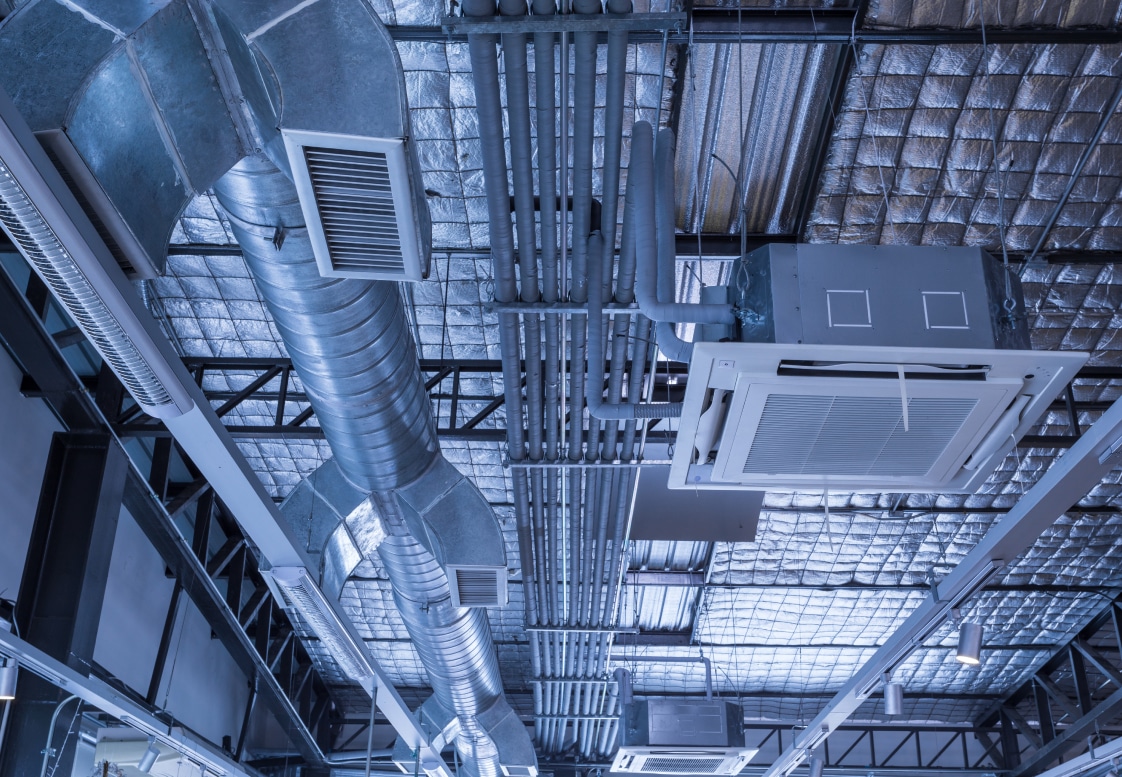The Growth of Canada HVAC Systems Market: Focus on Energy Costs and Operational Efficiency

Strong 8k brings an ultra-HD IPTV experience to your living room and your pocket.
Introduction
The Canada HVAC Systems Market has seen significant growth in recent years, driven by a mix of factors such as climate change, rising energy costs, and increasing demand for more energy-efficient solutions. With climate conditions ranging from harsh winters to hot summers, the Canadian market has long been reliant on effective HVAC systems to maintain comfort in both residential and commercial properties. However, the current surge in the market is largely propelled by the twin forces of rising energy costs and an increasing emphasis on operational efficiency, with both consumers and businesses seeking smarter, more sustainable solutions.
This article delves into the factors contributing to the expansion of Canada’s HVAC market, with a specific focus on how energy costs and operational efficiency are driving innovation and adoption of advanced HVAC solutions.
Growth Drivers: Energy Costs
The rising costs of energy have been one of the primary driving forces behind the evolution of HVAC systems in Canada. In recent years, energy prices have surged, making it more expensive for homeowners and businesses to maintain comfortable indoor environments. This trend has prompted the adoption of newer, more energy-efficient HVAC technologies, which help offset high operational costs.
1. Energy Price Volatility and Consumer Behavior
Canada, as one of the largest energy consumers per capita globally, faces high residential energy consumption, particularly for heating during the long winters. In provinces such as Alberta, Ontario, and Quebec, consumers are feeling the pinch of energy price hikes, which are often linked to global market fluctuations and regional supply constraints.
As a result, consumers are becoming more conscious of their energy consumption, leading to a shift towards more energy-efficient heating and cooling systems. Energy-efficient HVAC systems, such as heat pumps and smart thermostats, allow users to optimize their energy use, reducing overall utility bills while maintaining desired indoor temperatures. Furthermore, many HVAC manufacturers are offering products that integrate renewable energy sources like solar power, which not only helps reduce the reliance on traditional energy grids but also lowers long-term energy costs.
2. Government Regulations and Incentives
In Canada, provincial and federal governments are taking active steps to curb energy consumption and reduce carbon emissions through stricter building codes and regulations. Programs like the Canada Greener Homes Initiative and various provincial energy rebates incentivize homeowners and businesses to invest in energy-efficient HVAC systems.
The introduction of higher efficiency standards for HVAC products has made it necessary for manufacturers to innovate in order to meet regulatory requirements while keeping operational costs low. These regulations encourage the development of smart HVAC solutions, which leverage sensors, automation, and machine learning to adjust heating, cooling, and ventilation automatically, based on environmental conditions and user preferences.
3. Sustainability and Green Building Trends
A growing awareness of environmental sustainability is also playing a key role in driving the adoption of energy-efficient HVAC systems. With a significant focus on reducing carbon footprints, especially in urban areas, both businesses and consumers are opting for systems that contribute to green building standards, such as LEED (Leadership in Energy and Environmental Design) certification. The shift towards sustainable building practices, coupled with the demand for energy-efficient HVAC systems, is shaping the market.
Growth Drivers: Operational Efficiency
While energy costs are a significant concern, operational efficiency is equally important for businesses and homeowners seeking to minimize the total cost of ownership of HVAC systems. Operational efficiency, which involves optimizing the performance of HVAC systems while minimizing waste, is an area of increasing focus within the Canadian market.
1. Technological Advancements
Advances in HVAC technologies have played a crucial role in improving operational efficiency. For instance, the integration of Internet of Things (IoT) technology into HVAC systems allows for real-time monitoring and control, enabling users to adjust settings remotely and track energy consumption patterns. Smart HVAC systems can adapt to weather conditions, occupancy patterns, and user preferences, ensuring that energy is used only when needed and reducing waste.
The use of variable refrigerant flow (VRF) systems is another example of improved operational efficiency. VRF systems allow for the precise control of temperature in different zones of a building, enabling more efficient use of energy and ensuring that only occupied areas are heated or cooled. This level of customization reduces both energy consumption and wear on equipment, enhancing the overall lifespan of HVAC units.
2. Data Analytics and Predictive Maintenance
The application of data analytics in HVAC systems is transforming the way businesses and homeowners approach operational efficiency. Predictive maintenance, driven by data collected from sensors and connected devices, allows for early identification of issues before they become costly repairs. For businesses, this means reduced downtime, extended equipment life, and lower operational costs.
By leveraging artificial intelligence (AI) and machine learning, HVAC systems can predict maintenance needs, optimize system performance, and alert users to potential problems. This predictive capability leads to a more efficient system operation, with minimal energy wastage and maximum comfort.
3. Smart Grid Integration
The growing integration of HVAC systems with smart grids is another key driver of operational efficiency. Smart grids enable the optimization of energy use across the entire grid by communicating with connected devices, such as HVAC systems, to adjust energy consumption during peak periods or in response to grid conditions. This allows for more efficient distribution of energy, reducing costs and enhancing grid stability.
The ability for HVAC systems to communicate with the grid enables demand-response programs, where consumers can participate in initiatives that reduce energy use during peak demand times in exchange for incentives, such as lower energy rates. This not only helps reduce operational costs but also contributes to a more sustainable energy landscape.
The Role of Innovation in Shaping Canada’s HVAC Systems Market
Canada’s HVAC systems market is also benefiting from ongoing innovation in energy-efficient technologies, such as geothermal heat pumps, which leverage the natural heat of the earth to provide efficient heating and cooling. The development of advanced filtration systems, including those capable of eliminating harmful pollutants and allergens from indoor air, is enhancing the value proposition of modern HVAC systems.
As energy efficiency and operational cost management continue to dominate the conversation in Canada, manufacturers are continually developing smarter, more integrated HVAC systems. These systems offer a combination of energy savings, convenience, and enhanced indoor air quality, all of which are becoming more essential to Canadian consumers and businesses alike.
Conclusion
The HVAC systems market in Canada is undergoing significant transformation, driven primarily by two key factors: rising energy costs and the increasing demand for operational efficiency. As energy prices continue to rise and concerns about sustainability grow, consumers and businesses are prioritizing energy-efficient solutions that not only reduce their carbon footprint but also lower their long-term operational costs. Technological advancements in smart HVAC systems, predictive maintenance, and integration with smart grids are reshaping the landscape of the industry, making it more efficient, cost-effective, and environmentally friendly.
Looking ahead, the HVAC market in Canada is poised for continued growth, with innovation at the forefront of this evolution. As consumers and businesses alike seek out energy-efficient and cost-effective solutions, the demand for cutting-edge HVAC technologies is expected to soar, ensuring a sustainable future for Canada’s built environment.
Note: IndiBlogHub features both user-submitted and editorial content. We do not verify third-party contributions. Read our Disclaimer and Privacy Policyfor details.



